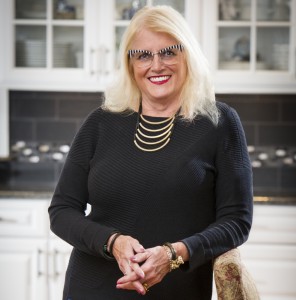

Dale J. Venturini, President and CEO of Rhode Island Hospitality Industry Association.
By Dale Venturini, President & CEO, RI Hospitality Association
When you’re hungry, not much is worse than ordering take-out or delivery from your favorite restaurant only to realize that you are missing part of your order once you sit down to eat. As inconvenient as this may be, it becomes an even bigger hassle when that order is dropped off by a third-party delivery service, severing the lines of communication between you, the customer, and the restaurant you ordered food from.
Similar to how Airbnb and Uber have affected the lodging and transportation industries respectively, we are now seeing the same level of market disturbance being caused by third-party food-delivery services.
Many restaurants today are ill-prepared to handle an ever-increasing load of take-out orders, let alone the influx of third-party delivery options that are popping up such as Postmates, Uber Eats, Grubhub and DoorDash.
While these services are convenient for consumers, business owners are wary of the drawbacks that these services often present. From commission charges, to delivery fees and haphazard service, there are many reasons for restaurants to be hesitant about enlisting the services of a third-party delivery purveyor.
While those who order delivery often expect to wait for their food, third-party delivery generally takes even longer, with Boston Consulting Group finding that the four most popular services – Uber Eats, Grubhub, Postmates and DoorDash – take approximately 50 minutes to deliver an order. Frighteningly enough, many of these services have no interest in delivering your order as fast as possible. In most cases, once the order has left the restaurant with a third-party delivery driver, the restaurant has totally lost control of the transaction. However, if the order is incomplete, or it has been tampered with during delivery, the responsibility is murky.
 In the eyes of the consumer, the restaurant holds full responsibility. This lack of accountability on the part of the delivery service is leading many restauranteurs to expand their in-house delivery services in an effort to properly oversee the customer experience and to keep track of important order data.
In the eyes of the consumer, the restaurant holds full responsibility. This lack of accountability on the part of the delivery service is leading many restauranteurs to expand their in-house delivery services in an effort to properly oversee the customer experience and to keep track of important order data.
Business owners are finding themselves at a crossroads trying to decide whether or not to partner with these companies. On one hand, it is important to adapt to market changes and consumer demand, but on the other, it is equally important to ensure customer satisfaction and quality of product. There are many logistical aspects to offering third-party delivery, including the fact that these services eat into the profitability of each transaction, with Grubhub charging a commission between 12 and 18% and Uber Eats charging up to 30% per order. Yes, third-party delivery services can attract new customers, and even help a restaurant to expand beyond its immediate market, but are the potential headaches associated with these partnerships actually worth it?
Even when a business does not officially partner with a third-party delivery service, their product may still be offered for delivery online. Sites including Postmates and DoorDash have been found to post menus and delivery options on their web pages without the consent of business owners. To get around establishing a contractual partnership, some of these companies have actually resorted to phoning-in orders themselves, only to have a delivery driver pick it up and bring it to a customer that the restaurant has had absolutely no contact with.
This service may be innovative, but there are still many kinks to work out. In the interim, the Rhode Island Hospitality Association encourages its members and business owners across the state to do their due diligence before entering into a partnership with a third-party delivery service.
Dale J. Venturini is the President & CEO of Rhode Island Hospitality Association. A veteran of more than 25 years in the hospitality industry, Venturini is considered by many to be the voice of the industry in the state of Rhode Island. She has been instrumental in improving the industry’s educational and training programs in the state, as well as enhancing the bottom line of the business she represents. Venturini splits her time between the office and the State House, a constant presence for her membership.



